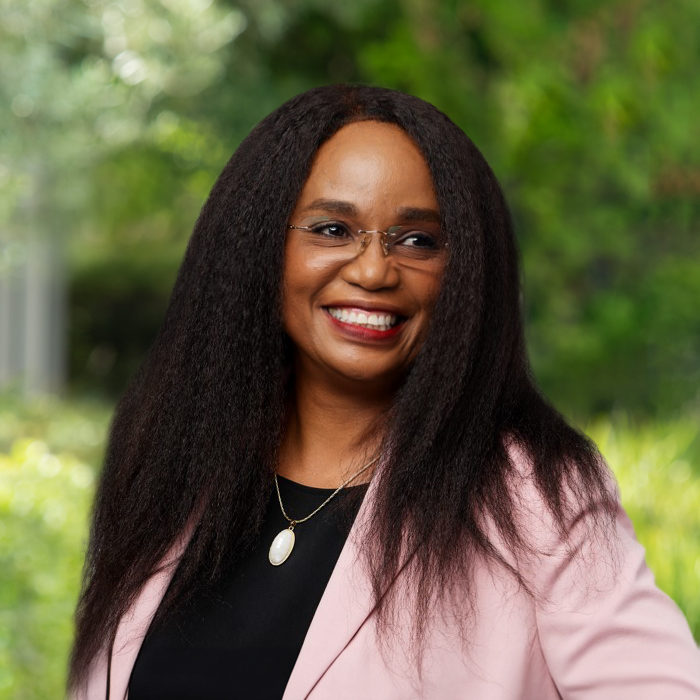Health
Geriatrician Advocates for Understanding Menopause and Aging

Dr. Adaeze Udezue, a geriatrician at Sutter Health in Novato, is highlighting the importance of understanding menopause and the aging process as part of a holistic approach to women’s health. With extensive experience treating patients aged 18 to 99, she views aging not merely as a biological phenomenon but as a deeply personal journey that deserves compassion and insight.
In her practice, Dr. Udezue has created a “Wall of Fame” featuring patients who have surpassed the age of 90. This collection serves as a testament to the possibility of vibrant and healthy aging. She emphasizes that menopause, which typically occurs between the ages of 45 and 55, is a significant milestone in a woman’s life that merits greater attention and understanding.
Menopause marks the conclusion of a woman’s reproductive years, driven by the decline of two critical hormones: estrogen and progesterone. Dr. Udezue notes that the average age of onset is around 52, yet there is a concerning trend of women entering menopause earlier, sometimes in their mid-30s. This shift may be linked to chronic stress and the disruption of natural biological rhythms prevalent in modern lifestyles.
As women approach their 50s, many begin to notice physical changes, such as slower recovery from injuries and increased fatigue. Dr. Udezue points out that these changes are often more pronounced in women, primarily due to the protective effects of estrogen and progesterone. She describes these hormones as “female superpowers,” essential not only for reproductive health but also for overall well-being.
Estrogen plays a crucial role in maintaining skin elasticity, bone density, brain function, cardiovascular health, and emotional stability. In contrast, progesterone helps regulate mood, promotes restful sleep, and aids in stress management. When levels of these hormones decline, many women report feeling as if they have lost their vitality, leading to what Dr. Udezue humorously refers to as the “crankiness index,” highlighting how hormonal changes can affect personality and relationships.
To navigate the aging process effectively, Dr. Udezue recommends focusing on both internal and external environments. The internal environment encompasses everything that enters the body, including food, air, and personal care products. The external environment includes the living conditions and social circles that can significantly impact health.
Despite making healthy lifestyle choices, women often require additional support for hormonal balance. Dr. Udezue explains the importance of the hypothalamus-pituitary-adrenal (HPA) axis, which is responsible for regulating stress responses and overall hormonal health. When this system is overwhelmed, it can lead to various health issues, underscoring the need for comprehensive care.
As part of her anti-aging strategy, Dr. Udezue advocates for menopause hormone therapy (MHT). This therapy is not solely about alleviating symptoms like hot flashes; it also helps women preserve the hormonal advantages vital for longevity and quality of life. When administered thoughtfully and under medical supervision, hormone therapy can contribute to maintaining bone density, cognitive function, cardiovascular health, and emotional stability.
Dr. Udezue emphasizes that aging is inevitable, but how one ages is a matter of choice. With the right tools, support, and mindset, women can approach this stage of life with dignity and confidence. By understanding the roles of estrogen and progesterone and supporting their balance, women can not only endure menopause but thrive through it.
In conclusion, the journey through menopause and aging requires a collective effort of understanding, compassion, and medical support. Dr. Udezue’s insights serve as a valuable reminder of the resilience and strength women can possess during this transformative phase of life.
-

 Politics2 weeks ago
Politics2 weeks agoHamas Chief Stresses Disarmament Tied to Occupation’s End
-

 Science2 weeks ago
Science2 weeks agoOhio State Study Uncovers Brain Connectivity and Function Links
-

 Entertainment2 weeks ago
Entertainment2 weeks agoMegan Thee Stallion Exposes Alleged Online Attack by Bots
-

 Science3 weeks ago
Science3 weeks agoResearchers Challenge 200-Year-Old Physics Principle with Atomic Engines
-

 Entertainment2 weeks ago
Entertainment2 weeks agoPaloma Elsesser Shines at LA Event with Iconic Slicked-Back Bun
-

 Top Stories2 weeks ago
Top Stories2 weeks agoFederal Agents Detain Driver in Addison; Protests Erupt Immediately
-

 Business2 weeks ago
Business2 weeks agoHome Depot Slashes Prices on Halloween Favorites Up to 75%
-

 Top Stories2 weeks ago
Top Stories2 weeks agoOrioles Hire Craig Albernaz as New Manager Amid Rebuild
-

 Entertainment2 weeks ago
Entertainment2 weeks agoSyracuse Stage Delivers Lively Adaptation of ‘The 39 Steps’
-

 Top Stories2 weeks ago
Top Stories2 weeks agoWill Smith Powers Dodgers to World Series Tie with Key Homer
-

 World3 weeks ago
World3 weeks agoGlobal Military Spending: Air Forces Ranked by Budget and Capability
-

 Politics3 weeks ago
Politics3 weeks agoNHP Foundation Secures Land for 158 Affordable Apartments in Denver









